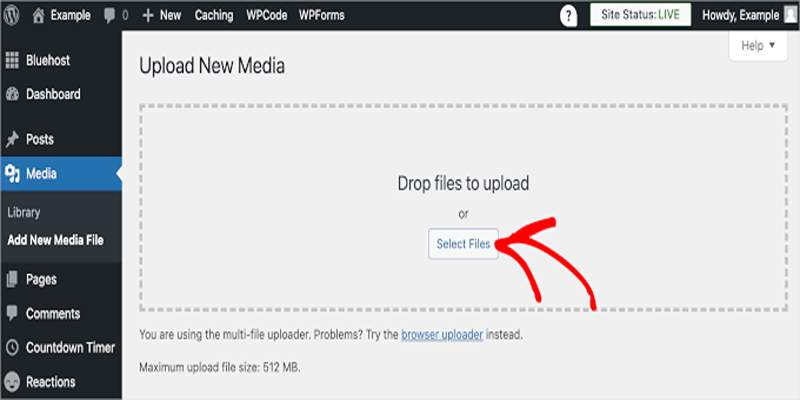GitHub vs GitLab vs BitBucket: A Comprehensive Breakdown
Developers use GitHub together with GitLab and Bitbucket as three main hosting platforms for their code management needs. Every platform carries basic tools for version management and group work and project organization with distinct attributes between platforms. The decision between these platforms depends on your developer situation as a solo practitioner or team member or enterprise professional.
GitHub

Among code hosting platforms GitHub stands as the most extensively used solution because it serves more than 40 million users across the globe. The platform went live in 2008 and Microsoft purchased it for $7.5 billion during 2018. The GitHub platform operates through its web application although it provides users with desktop and mobile management applications for mobile code handling.
Features:
- Version control: The version control system that GitHub employs is Git which facilitates developers to track their code modifications effectively.
- Collaboration: Through pull requests developers can exchange code contributions, submit reviews and raise issues while leaving comments with one another.
- Project management: With features like project boards, milestones, and issue tracking, GitHub makes it easy to manage projects and keep track of tasks.
- Integration: GitHub integrates with numerous tools and services, such as continuous integration (CI) systems, chat platforms, and project management tools.
Pricing:
GitHub enables users to select from different pricing tiers which include free access for solo developers and small collaborative groups. The paid plans at GitHub begin at $4 monthly cost per account user for unrestricted private repositories access.
Target Audience:
GitHub provides its services primarily for individual developers who work in teams ranging from small to medium-sized. GitHub provides enterprise-level solutions for companies with bigger operations.
GitLab
GitLab is a web-based DevOps platform that offers more than just code hosting. It was launched in 2011 and has gained popularity among developers due to its comprehensive set of tools for the entire software development lifecycle.
Features:
- Version control: Like GitHub, GitLab also uses Git as its version control system.
- Collaboration: Similar to GitHub, developers can collaborate on projects through pull requests and comments.
- Project management: In addition to project boards and issue tracking, GitLab also offers features like continuous integration/continuous deployment (CI/CD) pipelines and Kubernetes integration.
- DevOps tools: GitLab provides a complete DevOps platform with features like code review, testing, and deployment automation.
Pricing:
GitLab offers a free plan for individuals and small teams, but it is limited to community support. Its paid plans start at $19 per user per month for added features like project management and CI/CD pipelines.
Target Audience:
GitLab caters to both individual developers and enterprises looking for an all-in-one DevOps solution.
Bitbucket

Bitbucket was launched in 2008 as a competitor to GitHub and was acquired by Atlassian in 2010. It is primarily targeted towards businesses that use the Atlassian suite of products.
Features:
- Version control: Like GitHub and GitLab, Bitbucket also uses Git as its version control system.
- Collaboration: Similar to GitHub and GitLab, developers can collaborate on projects through pull requests and comments.
- Project management: Bitbucket offers basic project management features like issue tracking and team calendars.
- Integration: Bitbucket integrates with other Atlassian products such as Jira for better project management.
Pricing:
Bitbucket offers a free plan for up to five users, but it is limited to 1GB of file storage. Its paid plans start at $3 per user per month for unlimited private repositories and more storage space.
Target Audience:
Bitbucket is mainly targeted towards businesses that already use other Atlassian products and are looking for a code hosting platform with seamless integration.
How to choose the right platform?
Choosing the right code hosting platform ultimately depends on your specific needs and preferences. Here are some factors to consider:
Your team size:
If you are a solo developer or part of a small team, all three platforms can meet your needs. However, if you are working with a larger team or an enterprise, GitLab or Bitbucket might be better suited due to their additional project management and DevOps features.
Budget:
If budget is a concern, GitHub's free plan for individuals and small teams may be the most appealing option. However, keep in mind that as your team grows, you may need to upgrade to a paid plan. GitLab's free plan is limited in terms of support and features, so it may not be suitable for larger teams on a budget.
Integration:
Consider the tools and services your team currently uses and whether they integrate with a specific platform. For example, if you already use Jira for project management, Bitbucket may be the best option for seamless integration.
User interface:
The user interface of a platform is also an important factor to consider. Take some time to explore the platforms and see which one you find more intuitive and user-friendly.
How to migrate between platforms?
If you are currently using one platform and want to switch to another, there are various tools and guides available online to help with the migration process. Some common steps for migrating between platforms include exporting your repositories, transferring issues and pull requests, and setting up integrations with other tools. It is important to thoroughly research and plan the migration process to avoid any data loss or disruptions in workflow.
Conclusion
All three code hosting platforms have their own strengths and target audiences. It's essential to evaluate your team's needs and preferences before deciding on the best platform for your project. Whether it's the popularity and community support of GitHub, the all-in-one DevOps solution of GitLab, or the seamless integration with other Atlassian products in Bitbucket, there is a platform out there that can meet your specific requirements. So go ahead, explore these platforms, and choose the one that suits you best!
Related Articles

The 10 Best Email Apps for iPhone: Streamline Your Inbox Today

The Best Instagram Scheduling Apps to Simplify Your Social Media Strategy

Archiving Backtrack Call Recordings Automatically

Best pay-per-click (PPC) tools to optimize your ad spend

Task Prioritization Techniques: 10 Proven Methods

What is a squeeze page?

The AI Advantage: 8 Ways Real Businesses Are Using AI for Content Creation

Fix Media Upload Issues on Websites and Apps with These Steps

Best Calendar Apps for Windows to Boost Productivity: Stay Organized in 2025

12 Essential Software Solutions for Efficient Issue Tracking

Convert Mini DV to Digital Format on Windows: A Quick Tutorial

 suptoolbox
suptoolbox